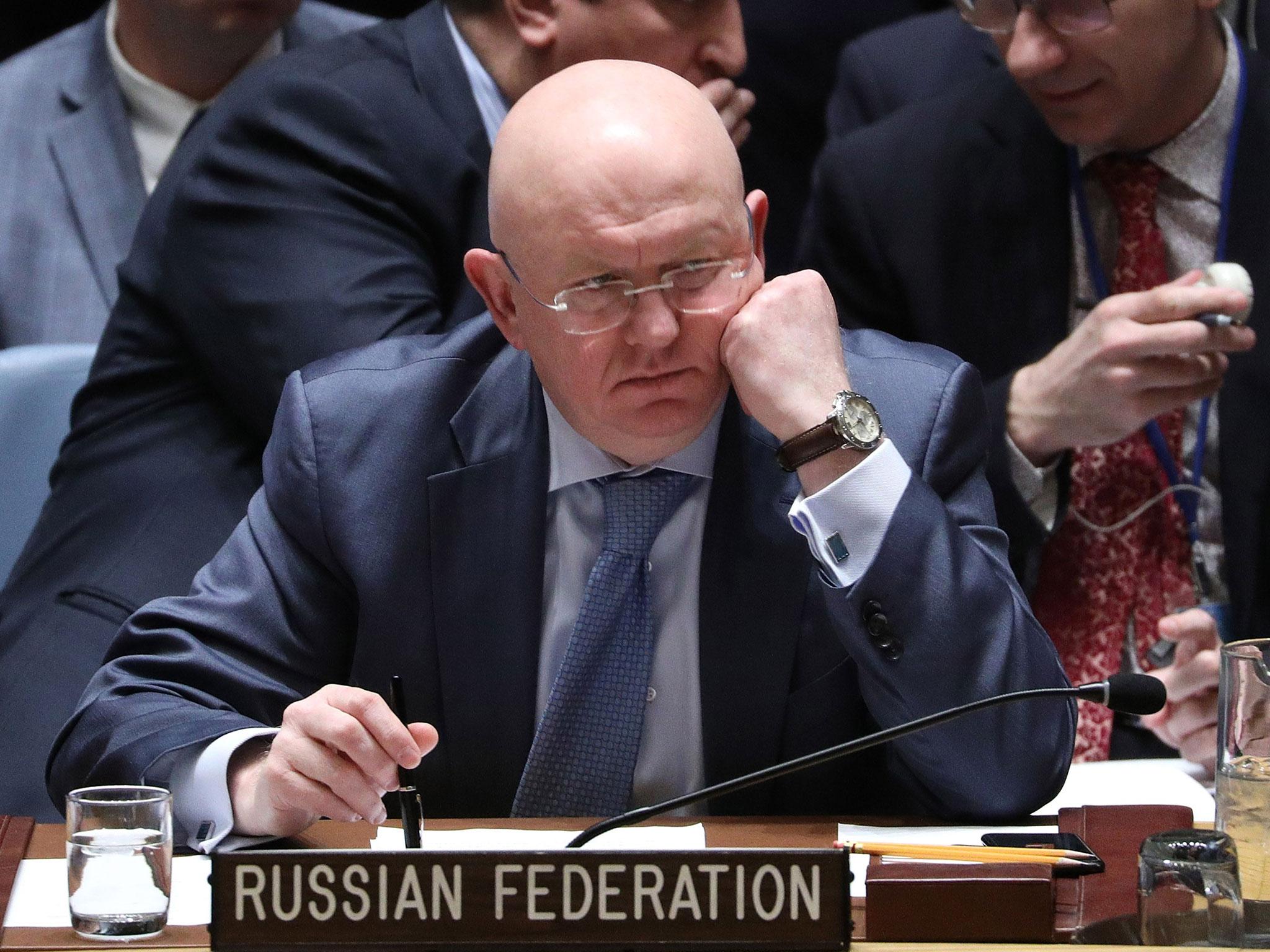Russia tells UK after spy poisoning claims: 'We will not be spoken to in that language'
Theresa May says Moscow has treated 'use of military-grade nerve agent... with sarcasm, contempt and defiance'

Your support helps us to tell the story
From reproductive rights to climate change to Big Tech, The Independent is on the ground when the story is developing. Whether it's investigating the financials of Elon Musk's pro-Trump PAC or producing our latest documentary, 'The A Word', which shines a light on the American women fighting for reproductive rights, we know how important it is to parse out the facts from the messaging.
At such a critical moment in US history, we need reporters on the ground. Your donation allows us to keep sending journalists to speak to both sides of the story.
The Independent is trusted by Americans across the entire political spectrum. And unlike many other quality news outlets, we choose not to lock Americans out of our reporting and analysis with paywalls. We believe quality journalism should be available to everyone, paid for by those who can afford it.
Your support makes all the difference.Russia does not “speak the language of ultimatums” and will not “be spoken to in that language either,” Moscow’s ambassador to the UN has said.
Vasily Nebenzya was speaking after Theresa May announced Britain would expel 23 Russian spies from the UK over the nerve agent attack on a former Russian double agent in Salisbury.
The British Prime Minister laid the blame firmly on the Russian President, Vladimir Putin, as former spy Sergei Skripal and his daughter Yulia remain critical in hospital.
“Their response demonstrated complete disdain for the gravity of these events,” Ms May said in her statement to Parliament.
“They have treated the use of a military-grade nerve agent in Europe with sarcasm, contempt and defiance.”
The UK’s deputy UN ambassador, Jonathan Allen, told a special meeting of UN Security Council that the Organisation for the Prohibition of Chemical Weapons (OPCW) had been asked to verify its analysis that Moscow was behind the attack.
In response, Mr Nebenzya said Russia denied any involvement involvement in the attack.
“We were given an ultimatum and requested in 24 hours to admit that we committed a crime. In other words, confess,” he said, according to the BBC.
“We do not speak the language of ultimatums. We do not use that language with anyone. And we will not allow to be spoken to in that language either.”
He added: “We demand that material proof be provided of the allegedly found Russian trace in this high-resonance event.
“Without this, stating that there is incontrovertible truth is not something that we can take into account.”
Mr Nebenzya also accused British authorities of using “propaganda war tools” and having “other motives” than establishing the truth behind the poisoning of Mr Skripal.
In comments tweeted by the Russian Mission at the UN, Mr Nebenzya said the UK was “dragging” the case to the UN Security Council, ignoring its international commitments because the OPCW “will not be convinced by its arguments”.
It said: “Incredible things are happening behind our eyes. The process of replacing the presumption of innocence with the presumption of guilt is taking place. Moreover, this criminal law principle is transferred into international relations.
“The authorities of #UK are not interested in finding the truth about the Skripal case, they have other motives. They are using #propaganda war tools to influence an uninformed and impressionable public. There are no facts, only allegations about the 'Russian trace'."

The United States has offered Britain its full support.
Nikki Haley, the US ambassador to the UN, said: "The United States believes that Russia is responsible for the attack on two people in the United Kingdom using a military-grade nerve agent. Dozens of civilians and first responders were also exposed.
“If we don’t take immediate concrete measures to address this now, Salisbury will not be the last place we see chemical weapons used. This is a defining moment.”
The 23 Russian diplomats, identified as undeclared intelligence officers, have been given a week to leave the UK. It is the largest mass expulsion since 31 diplomats were kicked out in 1985 following the defection of double agent Oleg Gordievsky.
Jeremy Corbyn drew criticism for his stance on the attack after his spokesman said the history of information from UK intelligence agencies is “problematic” and refused to say whether the Labour leader accepted the Russian state was at fault.
The spokesman’s comments prompted Labour backbencher John Woodcock to table an Early Day Motion “unequivocally” accepting the “Russian state’s culpability” for the attack, and supporting “fully” the statement made by Ms May in the Commons.
Join our commenting forum
Join thought-provoking conversations, follow other Independent readers and see their replies
3Comments